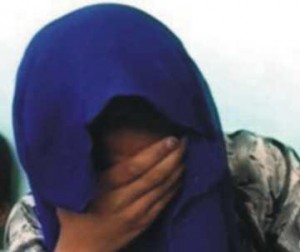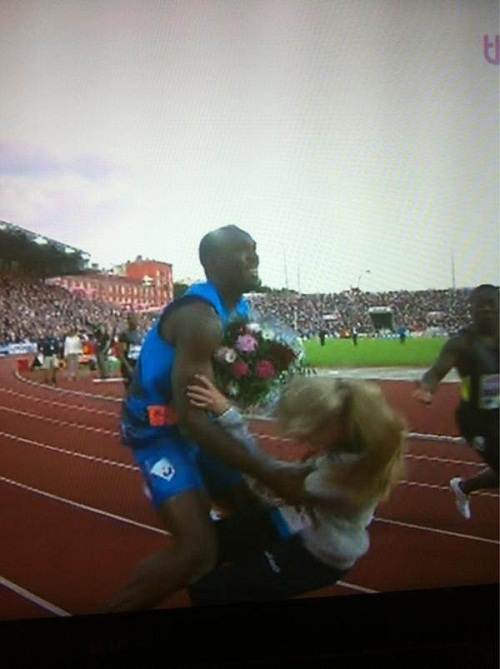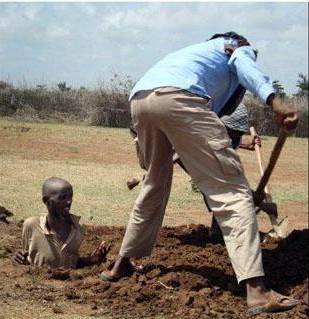SANDOKHAN
Sandokhan cut down by cronies
BY KARYL WALKER Sunday Observer staff reporter [email protected]
Sunday, January 06, 2008
This series of articles is not intended to lionise or glorify the acts of criminals but to put a historical perspective on criminality in Jamaica, with the hope of shedding light on why the country is now teetering on the edge of lawlessness. Of significant note, as well, is the fact that the subjects of these stories die violently and very young.
DURING the decade of the 1980s when the economy was rocked by crippling austerity measures, and structural adjustment policies had hit the impoverished areas of Jamaica, a new breed of criminality evolved.
Communities in the lower section of St Andrew such as Waterhouse, Olympic Gardens, Tower Hill and Riverton City were all shelters for vicious hoodlums. Life was unbearable for law-abiding citizens who had no choice but to live under the lawless rule of armed gangs and political thugs, who laid waste to those areas by filling the void left by a poorly equipped and hapless police force. Many times these gangs would kill, rape and terrorise residents with impunity.
The actions of the police at the time, which included batterings and wholesale arrests, further compounded their fight against crime and alienated them from the communities that were under the gun.
Out of this quagmire rose one of the nation’s most notorious gangsters. His name was Wayne Smith, known more popularly as ‘Sandokhan’.
At the time of Sandokhan’s short-term life of crime, residents of the area claimed they were in- between the rock of police brutality and the hard place of plunder by the armed gangs, which ran amok in their communities.
“We couldn’t take how the badman dem was a gwaan. Dem rape the woman dem and rob poor people – not to mention the whole heap a people them kill. But the police sometimes not better, as when them pass through them nuh care who them kick up and bruk batten pan. Them kill hole heap a innocent youths and plant gun pan dem to,” one woman who lived in Waterhouse said.
According to these residents, Sandokhan’s emergence could not have come too soon.
“Him bring order to the area and run whey the man dem who was going on with the wrongs. Him and him gang set the law because him never careless with him power, and treat old people and children with kindness,” the woman said.
But while other notorious bad men had shown a penchant for brutality from a tender age, those who knew Sandokhan say while he was a known ganja dealer, he was not one to murder and steal.
“Him start out selling weed and get crucial when a certain policeman try take over the weed business. Them try arrest him one day, but him escape and them lock up him woman,” one resident said.
Sandhokan was reportedly riding a motorcycle, with his wife as a pillion passenger when police officers signalled him to stop. Smith managed to wriggle out of the policemen’s grasp and managed to escape, but the cops reportedly arrested the woman.
The incident happened on November 19, 1986.
Residents say Sandokhan’s foray into murder and blood-letting had its genesis in that narrow escape with the law. Reports began to surface in the community that Mrs Smith, who was married to Sandhokan at the age of 15 in 1985, was being ‘boxed up’ by the police at the Olympic Gardens Police Station. The news infuriated the man, who would grow to become the nation’s most wanted fugitive and instilled in him a hatred for law enforcement.
The following night, Sandokhan and his gang undertook what has been the most brazen attack at law enforcement and society since independence from colonial rule.
The brazen gunmen stormed the porous, poorly staffed police station through the roof, and murdered three officers before stealing several weapons, including high-powered assault rifles, from the station armoury.
Another policeman reportedly escaped with his life after he lay on the ground and played possum.
The attack took place hours before dawn, and drew the condemnation of society and was dubbed a ‘guerilla style attack’ by local media.
The attackers had studied the habits of the cops at the station and knew that about that time the staff complement had dwindled and that those who were rostered to work were most likely asleep.
From that dreadful morning, the capture and castration of Sandokhan and his gang became priority number one for law enforcers.
Among those reported by police as being an accomplice of Smith was Nathaniel ‘Natty’ Morgan, who would take over the infamous title of most wanted after his former gang leader’s demise.
One week after the bare-faced invasion of the police station, the gangster, who managed to get past local Customs officials, was held aboard a departing flight at the Sangster International Airport. A popular artiste at the time had his passport seized and was barred from entering the United States and the United Kingdom after local police accused him of assisting the fugitive in his flight from justice. The ban was lifted several years later after the artiste’s work created a huge demand for his performances overseas.
Sandokhan was then dragged before the court after being charged with the triple murder of the cops. However, before he could be sentenced he managed to escape.
At the time, popular talk on the street was that he had powerful backers linked to the drug trade who had managed to corrupt prison warders and police officers, who had aided in his escape.
Sandokhan was recaptured and sentenced in the court to hang for his crimes. But on June 15, 1988, he managed to escape from the St Catherine District Prison (now called the St Catherine Adult Correctional Centre), and went back into the community of Waterhouse and its environs where he was shielded by the residents who welcomed his presence in their midst.
The policeman who had beaten Sandokhan’s wife, was identified in a letter by the fugitive to Monsignor Richard Albert as ‘D C Colt’.
“Father, Tuesday the police curfew Waterhouse and held my wife, and the same D C Colt boxed up my wife and beat her up and I want some action to take against the policeman soon. If no action don’t take against that policeman he is going to go on to do the same. And father, I promise you I will never molest the police but if the police continue doing things to my wife they will get me doing things to them….if no action is taken against that policeman he is going to make things worse on other policeman,” the letter read in part.
The Catholic priest had met with the most wanted man a number of times as he reportedly tried to persuade the fugitive to turn himself in, and came under fire from various sections of society when he likened the most wanted fugitive to Robin Hood.
“I make no excuse for Sandokhan or for the crimes he has committed. I, in no way want to say to you that poverty gives any man any excuse to commit crime, but I do beg of you to try and understand that when the social conditions around you are so bad, when the health services come nowhere near the basic needs of the community and unemployment, political rivalries cause young men to search for other alternatives to support themselves. I want you to understand how a young man like Sandokhan could emerge,” Albert said, while giving the main address at a function held by the Kiwanis Club.
Albert’s disclosure that he had been trying to convince the fugitive to turn himself in, after meeting with him many times, drew the ire of the then national security minister, Errol Anderson, who condemned Albert and wondered if, “a man in Father Albert’s position could have met with, and known the whereabouts of, Sandokhan and not pass this information to the police.”
One columnist suggested that Albert should be ‘given a taste of the lock-up’.
But despite Albert’s revelation, the state was intent on bringing the feared criminal to justice, and placed a $50,000 bounty on his head. The police were also busy using their brutal tactics to wrest information out of the residents of the communities where Sandokhan was known to use as his stomping ground. Residents reported that elderly persons, women and children were taken into custody and threatened, while the Sunday Gleaner reported that women and children were ‘prime targets’ of the police and soldiers who patrolled the community.
Two months after his flight from prison, the police had accused Sandokhan of committing nine murders including the shooting death of a teenager whom he described as an informer.
But despite the state’s efforts to nab or snuff out the life of the most wanted hoodlum, it was fellow gunmen who managed to end Sandokhan’s life just one year and 10 months after he had orchestrated the attack on the police.
During the early afternoon of September 8, 1988, in the neighbouring community of Tower Hill, the fugitive was ambushed by several gunmen and shot repeatedly. He died on the spot. It was hot on the lips of the residents of the area that Sandokhan was causing the security forces to apply too much pressure on the community and was killed so the police could relax the pressure.
The police, relieved that the man who had caused them many headaches had been extinguished, scraped up his remains and publicly displayed the fugitive’s body.
Soon after Sandokhan’s death, the police pressure on Waterhouse was not so intense, residents say.
Some of the contents of this article was researched from the book, Demeaned But Empowered, the social power of the urban poor in Jamaica: By Obika Grey.
Read more: http://www.jamaicaobserver.com/news/131065_Sandokhan-cut-down-by-cronies#ixzz1yxutgswB
THE REGGAE PHENOMENON
http://youtu.be/pCecw8cCXVA
In ‘Sunday A Come’, the late dub poet Mikey Smith alludes to a new consciousness: ‘but a like how yuh scratch dem drum/fi know yuh name an whe yub come from/for dat note is a long note/too long fi I sing it straight.’ The drum and identity, the stress and syntax – all bound in coherent meaning, something that Kwame Dawes might call the reggae aesthetic. Knowing that grammar is a kind of morality helps explain a lot about language, from how it develops to how it shapes perception and makes meaning out of experience. Nation language (i.e., the vernacular) challenges the old orthodoxy of language. The movement of Rastafari lingua into the Jamaican mainstream and beyond in the last generation is part of a sea change in the long project of decolonizing Jamaica, invoking a set of ideas about identity, history and language itself.
And in a broader sense, if we want to know Jamaica’s post-colonial life, argues Dawes in his remarkable new book, we need to understand how reggae gives voice to an ethos. ‘Reggae is a cultural phenomenon that is rooted in a spiritual and ideological context which has shaped not simply the way singers sing or musicians make music but in the way in which people talk, the way artists paint, the way Jamaica sees the world, and the way the world sees Jamaica and Jamaicans.’ Dawes’ new book will appeal to anyone for whom these subjects are matters of interest.
This volume of literary, musical and cultural commentary is part of a continuum of Dawes’ conception of something he terms the reggae aesthetic. He writes that an understanding of Caribbean writing of the last 30 years needs to be fortified by knowing what reggae is and how it functions. The reggae aesthetic comes out of ‘a working class art [that] asserted itself in its own terms and through a language and discourse that would in time shape the way an entire society defined itself and its artistic sensibilities.’ From its beginnings, reggae music registered the changing political and social consciousness of its time. Jamaican literature lagged behind, says Dawes, because it resisted speaking nation language and felt uncomfortable about Africa. While Jamaica has a tradition of literary nationalism, it was usually marked by European standards and conventions.
Why is it important? As my teacher Walter Ong has said, the more words you know, the more ideas you can have. Or, as critic Robert Benson notes, coming to terms with social change means coming with terms that adequately express it. That means expanding the field of discourse beyond the establishment’s. By widening the vocabulary lyrically and musically, reggae opened vistas of expression in social shape-shifting ways.
Dawes is an ideal grammarian for the reggae aesthetic, his voice the estuary where his energies as a poet, professor and one-time musician are poured. He bears a gift, rarer than it should be in academia, for intellectually processing his subject and still yielding enlivening writing: ‘For me, a vershan break, a shift to solely drum and bass, is a thing of beauty – it moves me. In the same way, the vacuum left behind by the withdrawal of the drum and bass, leaving the high-ended dance of guitar and keyboard, represents a moment of strange anticipation that affects my whole body. And when the drum and bass enter into that space that has been throbbing with possibility, I am forced to move, to turn, to react. I call this sheer beauty. I call the lyrical grace of Marley, his brilliance as a poet and visionary, a thing of beauty. I find…’ many things, occasionally in an effulgent chant, always in a disciplined and empathetic form.
Like Ralph Waldo Emerson in 19th century America, Dawes has a group of ‘representative men’ whose lives speak to history and human nature in Jamaica and who helped define the reggae aesthetic.
Don Drummond typifies ‘jazz and the reggae poetic archetype,’ at once defining himself as an artist on his own iconoclastic terms and as a representative of the values or the working class and the Rastafari. These influences contributed to the development of a distinctly Jamaican art form – ska.
Dawes’ commentary on Burning Spear, an archetypal ‘prophet,’ is fascinating. His point of departure is Spear’s cover of the Grateful Dead’s ‘Estimated Prophet,’ which comes initially as a surprise. Those of us who find the reggae/Dead crossovers better marketing than music may want to rethink things in this instance. Dawes locates the virtues of the reggae aesthetic in the song’s post-colonial sense and its artistic self-containedness. Burning Spear completely reconstructed ‘Estimated Prophet,’ singing it in nation language, making it pulse with a juggernaut reggae beat and adding traces of his signature ‘Marcus Garvey’ horn line. The song was then stamped with a fresh imprimatur, one that signified Spear’s prophet of black identity, Marcus Garvey. ‘And it is by this brilliant and respectful transformation of an American rock anthem into a totally Third World and Jamaican construction, that we see again the distinction and distinctiveness of the reggae aesthetic.’
Another surprising choice – Lee Perry’s From the Secret Laboratory (1990) – becomes a chapter centre-piece. Improvisatory, experimental, destabilizing in art and life is Lee Perry, who represents the Jamaican psyche just as he does a madman-artist figure favored by (mostly white) reggae fans outside Jamaica.
Again and again, Bob Marley emerges as the transcendentalist, defining the local moment with the power of Biblical verity. ‘Burning and Looting,’ for example, is elevated from ‘a cry for actual violent insurrection and social defiance … to an act of intellectual and spiritual guerilla activity’ whereby the line ‘Burning all illusion tonight/Burning all pollution tonight’ signifies ‘A cosmic expiation of the sins of the oppressor and enactment of the “fire next time”.’
Natural Mysticism is a wide text not because Dawes is comprehensive – he readily admits how much remains to be done with the reggae aesthetic with respect to specific reggae artists and to other Jamaican music and art – but because he allows for a multi-vocal treatment of his subject in the course of his deep meditations. Blending rigorous analysis with autobiography and poetry, his anatomy of reggae culture stands as a groundbreaking work quite nearly resembling a manifesto.
ABUSE OR PROTECTION?
Poverty rears its head and often gives those of us who are eaten up by its claws are given little or no alternative. This toddler belongs to a market vendor in Africa who tied him to her stall to prevent him from wandering off. To some , the shoddy tie may look abusive, but to those of you with whom poverty’s head is familiar , what say you and what would you have done if he were your and you had no choice? Do you think this is abuse?
WTF AFRICA- NUH CHILD OUTA WEDLOCK PIE PIE
The Islamists occupying northern Mali on Wednesday gave a couple 100 lashes of a whip for having a child out of wedlock as they continue enforcing sharia law, witnesses told AFP.
“At Sankore Square in Timbuktu, a man and a women got 100 lashes for having had a child outside of marriage,” said local official Mohamed Ould Baby.
“People were watching it was like a show. I was there, I saw the youths arriving at the square, I saw them being whipped, it is the first time I have seen something like that.”
The official said Islamist group Ansar Dine (Defenders of Faith) carried out the punishment.
Ansar Dine, which seized control of the north of Mali flanked by other rebel groups, has been implementing strict Islamic law, sharia, since late March, but this is the first time a couple has been punished in this fashion.
They have asked women to wear veils, whipped smokers and destroyed cartons of cigarettes while banning the sale of alcohol.
According to sharia, 100 lashes of a whip is the punishment for “fornicators” or those who have sex outside of marriage.
A hospital source in Timbuktu said the couple had sought treatment at the hospital after the beating.
An Islamic police official in the town said six other women who had had children outside of marriage would soon be “punished by Islamic law.”
The age of the children was not mentioned, however with Ansar Dine only in charge for about three months, they would have been conceived before the group seized the city.
While majority Muslim, Mali has long had a secular and moderate culture, with the ancient city of Timbuktu a meeting point for various tribes and religions.
via Nation
PSALM 54- GOODMORNING
Psalm 54
1 Save me , O God, by your name;
vindicate me by your might.
2 Hear my prayer, O God;
listen to the words of my mouth.
3 Arrogant foes are attacking me;
ruthless people are trying to kill me —
people without regard for God.[c]
4 Surely God is my help;
the Lord is the one who sustains me.
5 Let evil recoil on those who slander me;
in your faithfulness destroy them.
6 I will sacrifice a freewill offering to you;
I will praise your name, Lord, for it is good.
7 You have delivered me from all my troubles,
and my eyes have looked in triumph on my foes.
WOULD YOU CONFESS?
TRUE CONFESSION: I slept with our driver to give my husband a child

I am not a loose woman. I am just a woman who loves her husband very much and didn’t want to lose him. I just did what I had to do to save my marriage even though I feel guilty sometimes.
It was not easy but I slept with my driver so that I could give my husband a child, but instead, God gave me twins, a boy and a girl…
I was married to Philip for eight years. We had no child. “The worst was that I never got pregnant even for a day.” His mother became so impatient that she started breathing down my neck as she gave me no breathing space at all. She moved in to live with us and practically made my life unbearable – in my matrimonial home.
I cannot drink water and drop the cup because she must insult me. It got to a point that she stopped eating my food because, according to her, I should be feeding my children so that they would grow healthy and stronger and not her.
“Monica, if you had children, you are supposed to be feeding them with all these food so that they would grow healthy and strong. I am getting old so I don’t need all these nonsense you call food. Take them away and give me grandchildren,” she would scream. She also stopped talking to me, however, the only time she talks to me is when she wants to insult me and remind me of how less a woman I was.
Even after she had left, I could still hear those insults in my head so I decided to take a bold step – I seduced and slept with our driver, George. Geroge is a young man in his late 20’s. He is a graduate of Mechanical Engineering but because he could not get a good paying job, he opted to become a driver. I promised to get him a good job if he sleeps with me just once but I never disclosed the reason for this.
However, George thought I just wanted to cheat on my husband with him. I planned it during my ovulation so that I could get pregnant, although it was not easy sleeping with another man. I knew I was betraying my husband but I saw it as a necessary action. After a month, I discovered that I was pregnant. So, as promised I got a job for George in a friend’s company where he started earning almost 75,000 per month. When I told Philip that I was pregnant, he was so excited. “Sweetheart, God has finally answered our prayers. I am pregnant,” I revealed.
When I was five months pregnant, he informed his mother and she immediately returned to the house. She pampered me like a baby and also took good care of me. I never wanted to do any scan but my mother-in-law insisted. When I finally did the scan, it showed I was pregnant with twins, a boy and a girl. My mother- in-law and husband were extremely happy while I felt much fulfilled. “God thank you for compensating me with a set of twins after eight years of barrenness,” I muttered.
When the twins were born, the girl took ill for some time. It took a while before she fully recovered after several treatments and this got me worried. Philip and I insisted that blood test be carried out on them to determine their blood group and genotype and then came the shocking revelation. The doctor informed us that although their blood groups are both A, however, their genotypes are AS for the girl and AA for the boy meanwhile Philip and I are both AA. I wanted the ground to open and swallow me up because I felt Philip would ask questions but to my surprise, he did not. He just said, “Sweetheart, let’s go home. We have had quite a long day, you and my babies need to rest.”
Three months later, he held me closely and said, “Monica, don’t be scared. I don’t want to know who the father of the twins is. I know whatever you did, you did to save our marriage and I am very proud of you. I promise to always love you and my babies. I promise this will be a secret between us. I love you sweetheart. I know we will have our own children someday.” I wept as he wiped my tears with his hands.
I KNOW WHAT I DID WAS WRONG:
But at least my mother-in-law is extremely happy with me, that is all that matters. Although, everyone is happy but I feel guilty that I selfishly used an innocent man to achieve my aim. But before anybody judge me; just put yourself in my shoes and think for a moment what you will do?
****RULES**** 1. Debates and rebuttals are allowed but disrespectful curse-outs will prompt immediate BAN 2. Children are never to be discussed in a negative way 3. Personal information eg. workplace, status, home address are never to be posted in comments. 4. All are welcome but please exercise discretion when posting your comments , do not say anything about someone you wouldnt like to be said about you. 5. Do not deliberately LIE on someone here or send in any information based on your own personal vendetta. 6. If your picture was taken from a prio site eg. fimiyaad etc and posted on JMG, you cannot request its removal. 7. If you dont like this forum, please do not whine and wear us out, do yourself the favor of closing the screen- Thanks! . To send in a story send your email to :- [email protected]





Recent Comments